
SCARS Institute’s Encyclopedia of Scams™ Published Continuously for 25 Years

RSN™ Special Report: UK Victims May Get Reimbursed
Transfer Scam Victims Could Be Reimbursed – Great News For Scam Victims In The U.K.
Portions by SkyNEWS
Victims of bank transfer fraud could receive compensation under proposed new rules – though it remains unclear who will pay.
Bank account holders who are tricked into transferring money to fraudsters could be entitled to reimbursement if they have acted with the “requisite level of care” under proposed new rules.
Latest figures show consumers lost £92.9 Million to authorized push payment (APP) scams in the first half of 2018 – but unlike victims of other types of fraud such as credit or debit card scams, they are currently not entitled to be repaid by payment providers.
A body set up to address the issue has now proposed changing this, though it has yet to resolve who will pay for the compensation in cases where banks have also acted with due care.
It Follows Campaigns By Consumer Groups For Banks To Shoulder More Of The Burden In Such Cases
A new voluntary code to address the issue has been drafted by a steering group set up by the Payment Systems Regulator (PSR).
It aims to make it harder for criminals to commit APP fraud, set out how consumers can be vigilant and give them greater protection and support from banks.
“Importantly, the code proposes the principle that where a consumer has met their requisite level of care, they should be reimbursed,” the group said. However, the report has not been able to resolve who will pay for the compensation in cases where “no bank or other payment service provider involved in the payment journey has breached their own level of care”.
The steering group said it would work to consider and identify “a sustainable funding mechanism through which to reimburse consumers in such a scenario”.
Unfortunately, Such A System Of Reimbursements Will Ultimately Be Paid For By The Consumer In Higher Fees!
It will also try to resolve other aspects of how the process will work, including how to settle disputes between banks and other payment service providers.
A Final Version Of The Code Is Expected By Early Next Year (2019)
Ruth Evans, independent chair of the steering group, said: “This is a unique initiative bringing together the industry and consumer groups to set out how best we can tackle this issue – and really help those people who’ve become victims of these devastating crimes.” She said the report “marks an important step towards greater and more consistent protection for consumers and stronger standards for how banks and other payment service providers will prevent this type of fraud happening in the first place”.
The PSR said the report was a “positive step forward” and that in a further move it was planning to consult on new requirements for banks which would help to prevent APP scams.
Industry body UK Finance said it was committed to ensuring consumers were better protected from fraudsters and had invested millions in security systems as well as introducing new standards on helping victims and supporting law enforcement.
UK Finance chief executive Stephen Jones said: “It is vital that we get the right outcome for customers and prevent the UK from inadvertently becoming a magnet for fraudsters, while ensuring innocent victims and customers are not penalised for the criminal actions of others.”
He said it was clear that new regulation was needed rather than just a voluntary code.
“This will ensure that consumers and financial institutions can be certain in what circumstances victims will be compensated and how this compensation is funded in circumstances where all parties have acted reasonably in making the payment,” Mr Jones said.
At this moment it is not clear if victims will be able to files for transfer that happened prior to the new rule taking effect or now.
Be sure to follow RSN for more news about this topic!

RSN™ Team
a division of SCARS™
Miami Florida U.S.A.
What are the warning signs of wire transfer fraud?
Know how to recognize the warning signs of wire transfer fraud:
- Someone that you have never met in person is asking for money. This is the biggest red flag for fraud. If you’re in a long-distance relationship with someone you’ve never met in person, be wary of possible fraud, if they start asking for money. The reality is: fraudsters are professionals and they’ll do whatever it takes to get their hands on your cash. When it comes to that new love, overseas inheritance or investment opportunity, it’s worth the cost of the plane ticket to ensure it’s legit. If you can’t meet them in person, you should think twice before sending your money.
- You receive an email that claims you’ve won a jackpot but you have to pay fees before you can receive the prize. The reality is: the fraudsters are the ones hitting the jackpot. If it sounds too good to be true, it probably is.
- You see an ad online for a great deal, but you’re required to transfer the money right away to receive the product. The reality is: the product doesn’t exist and they just want your money.
- While many people use wire transfers to pay for luxury items, it’s worth checking the reputation of the seller, if you’re transferring a large sum.
- You get a job as a mystery shopper but they send you a check for more than what you’re owed. You’re asked to send the excess funds back via wire transfer. The reality is: this is just a clever way to steal your cash, as the check is probably fake.
- You receive an email from someone pretending to be your bank or other service provider saying you need to update your security info. The reality is: as soon as you click the link, you’re vulnerable to malware. Phishing emails that try to steal your information or get you to wire money will often contain a lot of spelling and grammatical errors. The email might not address you by name, and it comes from a suspicious and unrecognizable source. It will probably ask you to provide financial information or to verify it, but if you hover over a URL, you’ll see that it will take you to a suspicious and unknown website. Don’t click on any links within these emails; instead, just delete them and block the sender.
- You receive an email or a phone call that claims the IRS wants you to pay back taxes, and you need to transfer your money or you’ll be arrested. The reality is: the IRS will formally contact you by mail rather than by phone, and they won’t be asking for your payments by credit card or by wire transfer either.
END
– – –
Tell us about your experiences with Romance Scammers in our Scams Discussion Forum on Facebook »
– – –
FAQ: How Do You Properly Report Scammers?
It is essential that law enforcement knows about scams & scammers, even though there is nothing (in most cases) that they can do.
Always report scams involving money lost or where you received money to:
- Local Police – ask them to take an “informational” police report – say you need it for your insurance
- Your National Police or FBI (www.IC3.gov)
- The Scars Worldwide Reporting Network HERE or on www.Anyscam.com
This helps your government understand the problem, and allows law enforcement to add scammers on watch lists worldwide.
– – –
Visit our NEW Main SCARS™ News & Information Facebook page for much more information about scams and online crime: www.facebook.com/SCARS.News.And.Information
To learn more about SCARS visit www.AgainstScams.org
Please be sure to report all scammers HERE or on www.Anyscam.com
All original content is Copyright © 1991 – 2018 SCARS All Rights Reserved Worldwide & Webwide – RSN/Romance Scams Now & SCARS/Society of Citizens Against Romance Scams are all trademarks of Society of Citizens Against Romance Scams Inc.
-/ 30 /-
What do you think about this?
Please share your thoughts in a comment below!
Table of Contents
- Transfer Scam Victims Could Be Reimbursed – Great News For Scam Victims In The U.K.
- It Follows Campaigns By Consumer Groups For Banks To Shoulder More Of The Burden In Such Cases
- A Final Version Of The Code Is Expected By Early Next Year (2019)
- What are the warning signs of wire transfer fraud?
- Tell us about your experiences with Romance Scammers in our Scams Discussion Forum on Facebook »
- Please be sure to report all scammers HERE or on www.Anyscam.com
LEAVE A COMMENT?
Thank you for your comment. You may receive an email to follow up. We never share your data with marketers.
Recent Comments
On Other Articles
- on Love Bombing And How Romance Scam Victims Are Forced To Feel: “I was love bombed to the point that I would do just about anything for the scammer(s). I was told…” Feb 11, 14:24
- on Dani Daniels (Kira Lee Orsag): Another Scammer’s Favorite: “You provide a valuable service! I wish more people knew about it!” Feb 10, 15:05
- on Danielle Delaunay/Danielle Genevieve – Stolen Identity/Stolen Photos – Impersonation Victim UPDATED 2024: “We highly recommend that you simply turn away form the scam and scammers, and focus on the development of a…” Feb 4, 19:47
- on The Art Of Deception: The Fundamental Principals Of Successful Deceptions – 2024: “I experienced many of the deceptive tactics that romance scammers use. I was told various stories of hardship and why…” Feb 4, 15:27
- on Danielle Delaunay/Danielle Genevieve – Stolen Identity/Stolen Photos – Impersonation Victim UPDATED 2024: “Yes, I’m in that exact situation also. “Danielle” has seriously scammed me for 3 years now. “She” (he) doesn’t know…” Feb 4, 14:58
- on An Essay on Justice and Money Recovery – 2026: “you are so right I accidentally clicked on online justice I signed an agreement for 12k upfront but cd only…” Feb 3, 08:16
- on The SCARS Institute Top 50 Celebrity Impersonation Scams – 2025: “Quora has had visits from scammers pretending to be Keanu Reeves and Paul McCartney in 2025 and 2026.” Jan 27, 17:45
- on Scam Victims Should Limit Their Exposure To Scam News & Scammer Photos: “I used to look at scammers photos all the time; however, I don’t feel the need to do it anymore.…” Jan 26, 23:19
- on After A Scam, No One Can Tell You How You Will React: “This article was very informative, my scams happened 5 years ago; however, l do remember several of those emotions and/or…” Jan 23, 17:17
- on Situational Awareness and How Trauma Makes Scam Victims Less Safe – 2024: “I need to be more observant and I am practicing situational awareness. I’m saving this article to remind me of…” Jan 21, 22:55
ARTICLE META
Important Information for New Scam Victims
- Please visit www.ScamVictimsSupport.org – a SCARS Website for New Scam Victims & Sextortion Victims
- Enroll in FREE SCARS Scam Survivor’s School now at www.SCARSeducation.org
- Please visit www.ScamPsychology.org – to more fully understand the psychological concepts involved in scams and scam victim recovery
If you are looking for local trauma counselors please visit counseling.AgainstScams.org or join SCARS for our counseling/therapy benefit: membership.AgainstScams.org
If you need to speak with someone now, you can dial 988 or find phone numbers for crisis hotlines all around the world here: www.opencounseling.com/suicide-hotlines
A Note About Labeling!
We often use the term ‘scam victim’ in our articles, but this is a convenience to help those searching for information in search engines like Google. It is just a convenience and has no deeper meaning. If you have come through such an experience, YOU are a Survivor! It was not your fault. You are not alone! Axios!
A Question of Trust
At the SCARS Institute, we invite you to do your own research on the topics we speak about and publish, Our team investigates the subject being discussed, especially when it comes to understanding the scam victims-survivors experience. You can do Google searches but in many cases, you will have to wade through scientific papers and studies. However, remember that biases and perspectives matter and influence the outcome. Regardless, we encourage you to explore these topics as thoroughly as you can for your own awareness.
Statement About Victim Blaming
SCARS Institute articles examine different aspects of the scam victim experience, as well as those who may have been secondary victims. This work focuses on understanding victimization through the science of victimology, including common psychological and behavioral responses. The purpose is to help victims and survivors understand why these crimes occurred, reduce shame and self-blame, strengthen recovery programs and victim opportunities, and lower the risk of future victimization.
At times, these discussions may sound uncomfortable, overwhelming, or may be mistaken for blame. They are not. Scam victims are never blamed. Our goal is to explain the mechanisms of deception and the human responses that scammers exploit, and the processes that occur after the scam ends, so victims can better understand what happened to them and why it felt convincing at the time, and what the path looks like going forward.
Articles that address the psychology, neurology, physiology, and other characteristics of scams and the victim experience recognize that all people share cognitive and emotional traits that can be manipulated under the right conditions. These characteristics are not flaws. They are normal human functions that criminals deliberately exploit. Victims typically have little awareness of these mechanisms while a scam is unfolding and a very limited ability to control them. Awareness often comes only after the harm has occurred.
By explaining these processes, these articles help victims make sense of their experiences, understand common post-scam reactions, and identify ways to protect themselves moving forward. This knowledge supports recovery by replacing confusion and self-blame with clarity, context, and self-compassion.
Additional educational material on these topics is available at ScamPsychology.org – ScamsNOW.com and other SCARS Institute websites.
Psychology Disclaimer:
All articles about psychology and the human brain on this website are for information & education only
The information provided in this article is intended for educational and self-help purposes only and should not be construed as a substitute for professional therapy or counseling.
While any self-help techniques outlined herein may be beneficial for scam victims seeking to recover from their experience and move towards recovery, it is important to consult with a qualified mental health professional before initiating any course of action. Each individual’s experience and needs are unique, and what works for one person may not be suitable for another.
Additionally, any approach may not be appropriate for individuals with certain pre-existing mental health conditions or trauma histories. It is advisable to seek guidance from a licensed therapist or counselor who can provide personalized support, guidance, and treatment tailored to your specific needs.
If you are experiencing significant distress or emotional difficulties related to a scam or other traumatic event, please consult your doctor or mental health provider for appropriate care and support.
Also read our SCARS Institute Statement about Professional Care for Scam Victims – click here to go to our ScamsNOW.com website.




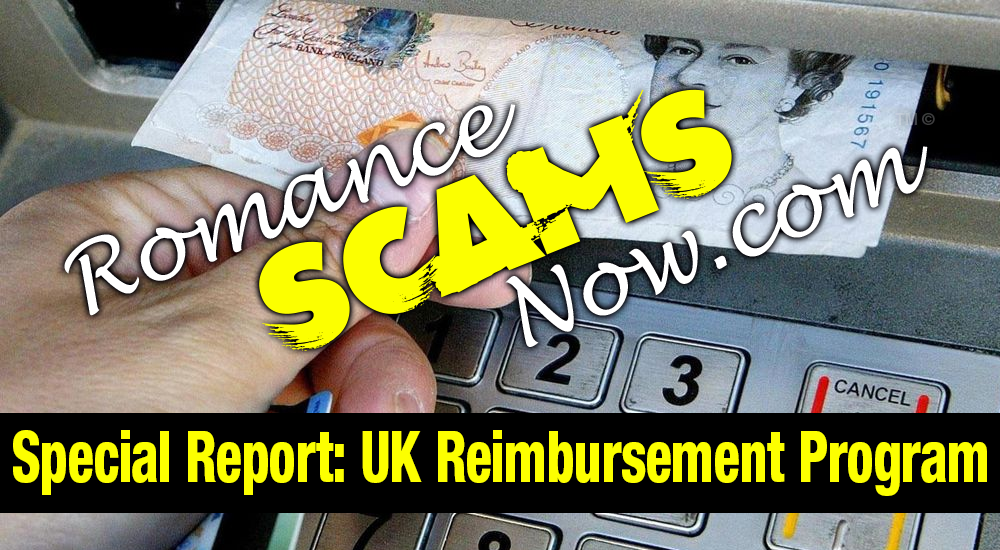





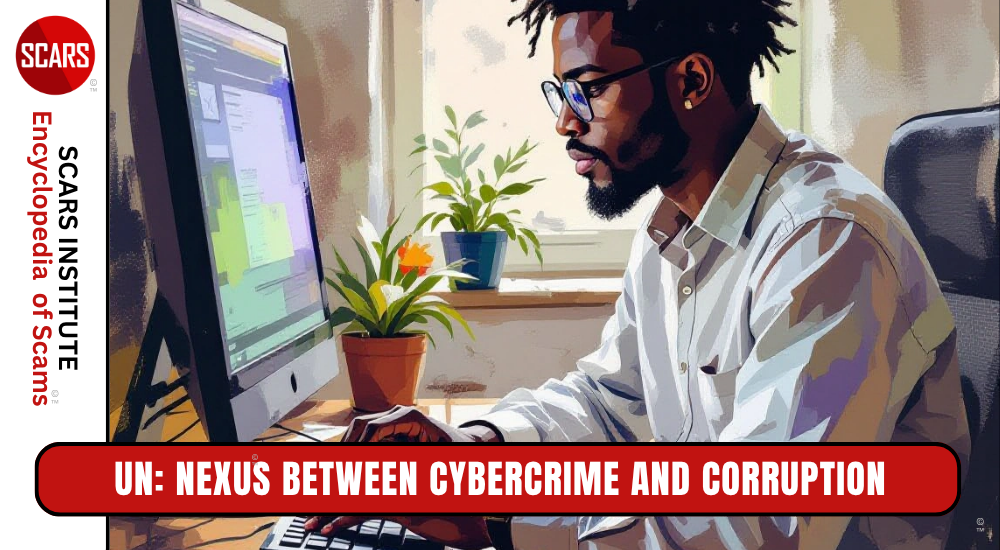
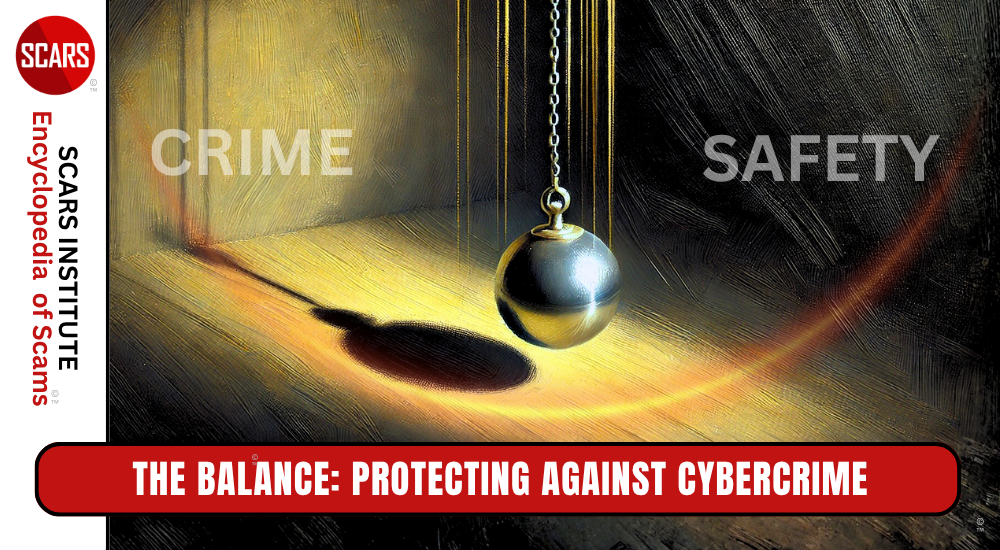

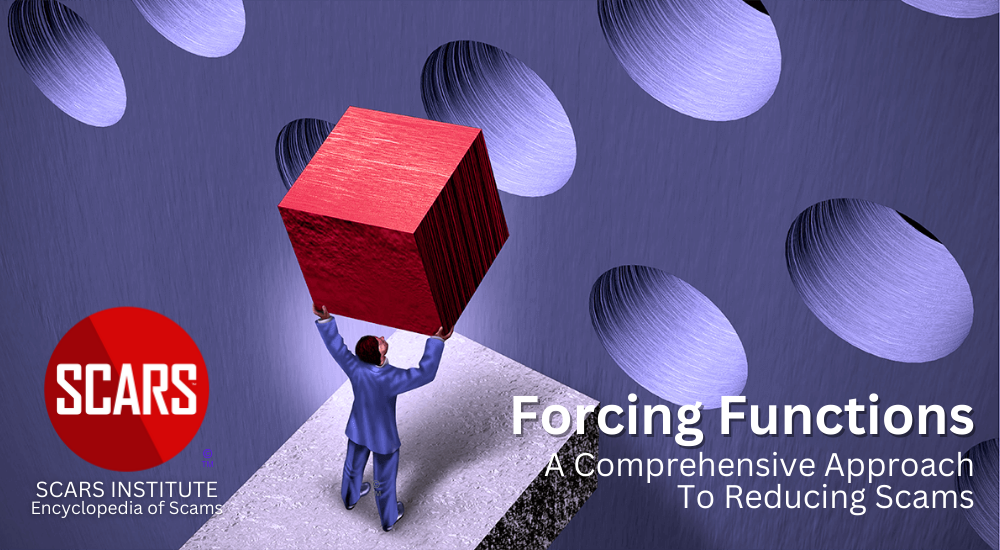
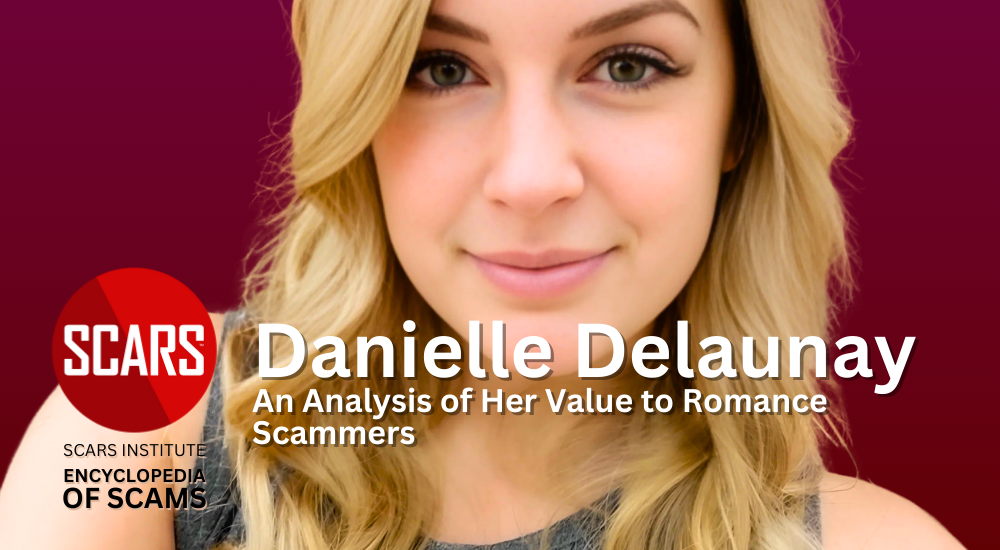




As a victim of a Romantic Scammer whom I have reported via this site. Is there any way that I can know that the information which I provided has been used to catch a scammer.
This person/persons are still attempting to contact me now threatening to send personal photos to my family I think, in an attempt to blackmail me??
No there is not. It is provided to the agencies and entities that receive our feed in real time. But most will be used to watch for potential opportunities in the future. Such as when a scammer is arrested then law enforcement will look for other victims. With over 100,000 scammers working law enforcement has a massive task and they do not jump on each report to investigate them. Scammers are spread around the world and international investigations are now easy. You did your duty by reporting the crime. Now you have to take the steps necessary to protect yourself and block all access to your scammer, and that may mean telling your family that someone is harassing you. These are the sad consequences of becoming involved with a scammer.